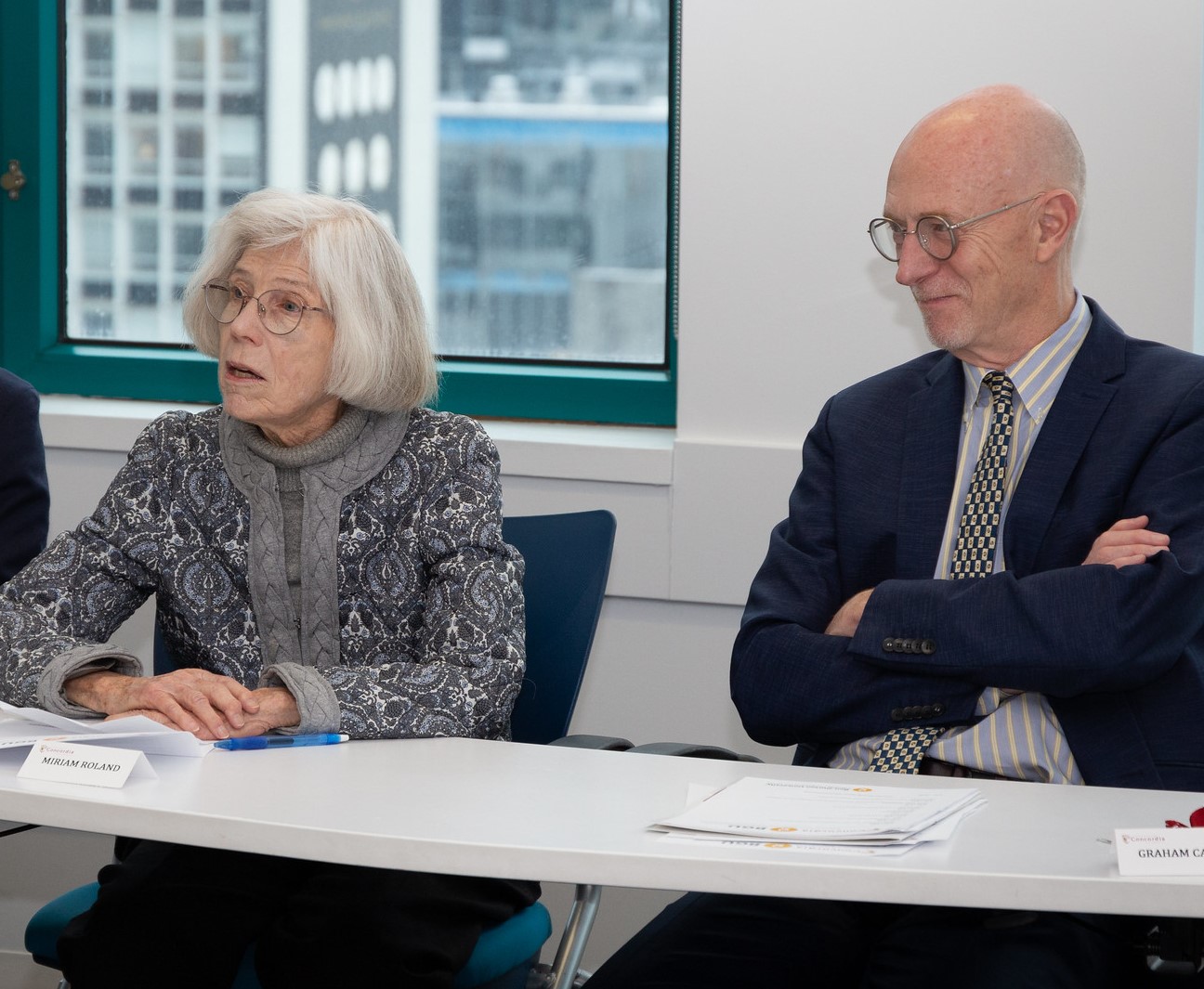Jewish National Fund Canada (JNF) is offering what is described as the largest ever prize package to be awarded in Quebec to encourage the development of innovative technology addressing climate change by nonprofit institutions and early-stage companies.
The total amount to be disbursed this year is more than $250,000, divided between the Breakthrough Research Prize for nonprofits and the Startups Prize with the winners to be announced in May.
The prizes are a local component of JNF Quebec division’s Climate Solutions Prize (CSP), initiated by Montreal businessman Jeff Hart in 2021 to leverage Israel’s potential to be a world leader in green technology.
Last fall, the inaugural round of prizes saw three Israeli researchers and seven startups receive over $2 million to pursue their ideas for making a breakthrough in solving the climate crisis.
Quebec Environment Minister Benoit Charette, who was present for the announcement of the local prize, hailed the JNF offer saying it serves as an incentive for entrepreneurship and promotes the province’s strength in this field abroad.
“The Quebec government is proud to support the CSP-Quebec which seeks to draw from Quebec’s rich basin of talent and innovation,” he said. “By providing this opportunity the CSP is helping to showcase the important role of Quebec’s burgeoning green tech ecosystem when it comes to finding solutions for global challenges.”
Hart, CSP executive chair, responded, “We are proud to spearhead this concept and incredibly pleased with the strong support from our partners in government, industry, and academia to make this a game-changing initiative.”
Other partners of CSP-Quebec and the Climate Solutions Festival, where winners will be announced on May 23-24 at the Grand Quay of the Port of Montreal, include Cycle Momentum, StartUp Fest, 2 Degrés, and Esplanade.
Galith Levy, JNF’s chief CSP officer, added, “The world needs a diversity of solutions to reverse climate change, and we believe Quebec can be a world leader in this area. The CSP can help accelerate the development of Quebec-made solutions that have a global impact.”
The prize donors are looking for ideas that can by developed for practical use in such areas as reducing greenhouse gas emissions, improving energy efficiency or renewability, and increasing carbon capturing capacity.
The deadline for submissions is Feb. 20.
The Breakthrough Research Prize purse totaling $100,000, coming from JNF, will be awarded to two nonprofit organizations. Submissions will be scored based on criteria including impact, cost-effectiveness, and potential for application.
Eligible are teams from universities, research institutes, hospitals, environmental organizations registered as charities, and nonprofit “incubators” affiliated with any of these organizations.
The first prize is $60,000; the second $40,000.
Managed by Cycle Momentum, the $100,000 prize open to startups is made possible with support from the National Bank of Canada, Canderel, and the law firm Davies Ward Phillips & Vineberg.
Complete details on eligibility, partners and sponsors, and how to participate can be found at climatesolutionsprize.com.
Cycle Momentum is identified as an accelerator and open innovation platform that brings together international entrepreneurs, investors and innovators to find answers to major ecological problems.
Coincidentally, collaboration between Quebec and Israel on tackling climate change has been given another boost with a one million-dollar donation benefiting joint research by Concordia University and Ben-Gurion University of the Negev (BGU).

The gift from Miriam Roland of Montreal, a longtime supporter of both universities, is to be shared equally for sustainability pilot projects led jointly by Concordia’s Next-Generation Cities Institute and BGU’s Goldman Sonnenfeldt School for Sustainability and Climate Change.
The focus will be on sustainable urban development, and Concordia and BGU being located in vastly different climatic and cultural environments will allow for comparisons in such key concerns as “zero-carbon” buildings and the water-energy-food nexus, said Concordia president Graham Carr.
BGU president Daniel Chamovitz noted that the Goldman school has five decades of accumulated knowledge in addressing the world’s most pressing environmental issues, particularly in bringing together nature and technology.
Roland, who served on Concordia’s board of governors from 1991 to 2002, observed that both universities were founded around the same time, have set bold objectives for growth, and have had an impressive impact relative to their size.
“I am deeply concerned about the kind of world future generations will inherit,” said Roland, 92. “I think we live on a beautiful planet, and I would like to contribute to solutions that help us live comfortably without imperilling the lives of others.”
University officials stressed that the projects’ ultimate goal is to attract the attention of business and government.
Ursula Eicker, founder and co-president of Next-Generation, said, “The partnership Miriam has enabled with BGU will allow us to advance field work with real-world relevance and utility. In fact, we will be applying findings from our research on the design and operation of zero-carbon buildings, not only to our own campuses, but also to projects in the city that aim for sustainability and affordability as a result of this new collaboration.”
Eicker is also Canada Excellence Research Chair in Smart, Sustainable and Resilient Communities and Cities.
Roland has committed a total of nearly $4 million to Concordia’s current fundraising campaign.
